Hello, and welcome back to the twenty-first episode of the Bright Morning Newsletter. Just as a quick recap: we released our third long-form podcast discussion last week.
As we mentioned in last week’s discussion, we are grateful for your feedback, and we are pleased to announce that the comment section will be available on all subsequent articles and podcasts. Please consider taking some time at the end of each article and letting us know your thoughts. It might also be a good chance to generate new discussions with other members of the audience.
Moreover, since it appears to be a hit with our audience, we will be doing even more long-form podcasts in the near future. We hope that you enjoy this slight change in format, and as always, please consider sharing our work.
Having said that, let us dig into some of the big issues of the past week.
| FINANCE
The Canadian budget: a reflection of us?
The Nitty Gritty:
Prime Minister Trudeau is up for a new award 🥇 (whether he likes it or not). By 2023, he will have increased the federal budget more than all other Prime Minsters.. combined.
Last week, after over two years, the Trudeau government released its 2021 budget. We are not afraid to admit that Trudeau’s government is skilled at political theatre and virtue signalling, and so it came as no surprise when we saw the hypothetically nice and fluffy language sprinkled throughout the budget. The major themes included “job creation; small business and growth; women and early learning and child care; climate action and a green economy; and young Canadians.” But what do each of these mean? And more importantly, what do they cost?
According to one National Post article, “should the government survive long enough to put its plans into place, the federal debt will hit $1.4 trillion by 2026 (up from $615 billion when Justin Trudeau became Prime Minister).” Upon reviewing the budget, MP Pierre Poilievre stated that “by 2023, Trudeau will have added more debt in 7 years than Canada added in the prior 148 years.” In other words, Trudeau will have added more to the national debt than all previous Canadian Prime Ministers combined. A figure like that ought to make your eyes burst out of your skull.
As Chris mentioned in last week’s podcast, the Canadian government seems determined to print its way out of the pandemic. There are two possible reasons for this: either the federal government does not understand the ramifications of their spending, or they do understand, but do not care. Based on the figures we just identified, it seems self-evident that the latter is more likely.
Furthemore, when conservatives raise objections to the national debt, they are dismissed - as if worrying about economic depression is mere nitpicking. This hubris was on display when a Liberal MP, Sean Fraser, suggested that the Canadian spending throughout the pandemic was not only inconsequential, but somehow successful. This prompted Poilievre to ask: “why is it that this government can only judge success by how expensive it can be, rather than by the results?”
Throughout the pandemic, we have heard some Canadian politicians insist that “we cannot have a healthy economy without healthy people.” For a virus that has a 99.98% survival rate, this seems like an overstatement, especially when societies are capable of being operational while managing the COVID crisis (as we have pointed out several times). Nonetheless, this attitude is indicative of the lens through which Canadian politicians view our society - that is, there is an underlying assumption that we can spend money without making money, and then pay back the debt with more printed money (it is Modern Monetary Theory in action).
More broadly, we cannot help but question what this says about our society. Why is unlimited spending responded to with callous indifference? How does this not further entrench a culture of dependence on government subsidies? What sort of society are we setting up for young people, who are destined (or doomed) to inherit this unprecedented debt?
Trudeau appears to be under the impression that there will be an economic boom when the pandemic is behind us, but as his predecessor, Stephen Harper, has warned, investors are losing faith in Canada. And why wouldn’t they lose faith? Our government is spending like a gambling addict who believes that he will receive his big payoff after just one more bet. On that note, Canada is not a country that rewards innovation anymore. This is why the NDP is proposing a $20.00/hour minimum wage and taxing billionaires at 100%, while the Liberals are in favour of Universal Basic Income (UBI). Policy proposals are a reaction to cultural changes, and so based on these proposals alone, it stands to reason that there is a growing attitude amongst Canadians that we should feel comfortable vilifying success, punishing those who risk innovation, and disincentivizing work. Does this sound like a country that is set up for success? What does that say about us?
| CULTURE
Fake feminism
The Nitty Gritty
Last week, the United Nations voted to elect China and Iran to the international body’s commission on women’s rights. Yup 🤡 🌎.
We mentioned that the Trudeau government is skilled at political theatre and virtue signalling. Since 2015, this government has branded itself as a “feminist government,” with the hypothetical goal of advancing equality between men and women not just on a national level, but on an international level. Even in the 2021 budget, the government identifies “advancing a national plan to end gender-based violence” as one of its commitments.
If we combine the commitment to “end gender-based violence” with the Trudeau government’s desire to spend money on foreign aid, then we could reasonably assume that at least some of that money would be reserved for human rights abuses, especially those directed towards women, right?
Well, Canada and the United States continued their patterns of silence on international human rights abuse this past week after the United Nations elected Iran and China to the Commission on the Status of Women - a commission which claims to be “exclusively dedicated to the promotion of gender equality and the empowerment of women.”
In case readers are not familiar with both nations’ records on women’s rights, allow us to jog your memories. Iran “allows underage marriages of girls as young as 13 - and as young as 9 with parental permission - enforces strict restrictions on women’s clothing, and carries out child executions. Women are severely limited regarding their physical mobility, education, financial independence, and work opportunities, and pay.” Furthermore, so-called honour killings - where women are murdered if they are perceived to be dishonouring their families - are not an uncommon practice in Iran, with up to 450 occurring each year. In China, on the other hand, women are limited to having only two children, an increase from their decades-old One Child Policy, which resulted in forced abortions on Chinese women. At the same time, the Chinese Communist Party currently has over one million Uyghur men and women in concentration camps and “systematically forces minority women to take pregnancy tests and submit to forced sterilization, intrauterine birth control devices, and abortions.”
Shocked? Apparently it was not shocking enough for Trudeau to comment on. As we have pointed out, this is not the first time Trudeau has been silent on the abuse of women in China (he refused to use the word “genocide” when referring to the Uyghur concentration camps). For that matter, President Biden and Vice President Harris were also silent. Of course, leaders of Canada and the US are happy to condemn their own societies as irredeemably racist, sexist, and corrupt, but when it comes to condemning real systemic oppression, Trudeau, Biden, and Harris are nowhere to be seen.
What should be the takeaway here? We urge people to look at this as yet another example of the camouflage employed by pseudo-progressive leaders, like Trudeau. They wrap themselves up with the warm and fuzzy cloak of “feminism” because they know that it is a useful shield from criticism. Thus, when we see phrases like “advancing a national plan to end gender-based violence” in the budget, we can be almost certain that it will have nothing to do with its stated goal. Instead, it means one thing and one thing only: tax increases.
Don’t like it? Well, then you must be for violence against women. See how easy this game can be played?
| CULTURE, POLITICS & SOCIETY
Derek Chauvin and the court of public opinion
Last week, former Minneapolis police officer, Derek Chauvin, was found guilty of second-degree murder, third-degree murder, and second-degree manslaughter in relation to the death of George Floyd. The trial of Chauvin was heavily publicized and politicized, and so the response was never going to be anything but polarizing. After Chauvin was found guilty, the internet exploded with reactions. Joe Biden and Kamala Harris even addressed the nation afterwards, with Harris claiming that “this is a day of justice in America.”
But was it? Did the American justice system prevail, as intended?
Instead of commenting on the conviction or picking apart each piece of evidence (we are not the jurors, after all), we would instead like to highlight some instances in which outside pressures might have influenced the verdict.
As Larry Elder wrote, legacy media outlets worked overtime to ensure that this trial was portrayed not just as a referendum on American policing, but on the country itself. Cable news outlets covered the trial from start to finish, with ads “showing two fists tearing an American flag in half, with the caption ‘America’s Very Soul is on Trial.’” For the record, America’s soul was not on trial, but Derek Chauvin was. To extrapolate the trial of one man to the entire nation is to be deliberately dishonest. A well-meaning critic who wants to see the improvement of his or her society would never make this statement, but an ideologue - a person who seeks to tear down sacred institutions - would.
There were also blatant examples of intimidation on display from both activists and elected representatives. For example: in a now-deleted video that went viral, Black Lives Matter activist Maya Echols threatened that “if George Floyd’s murderer is not sentenced, just know that all hell is gonna break loose. Don’t be surprised when buildings are on fire. Just sayin’.” Similarly, Representative Maxine Waters - who is no stranger to issuing threats of violence - rallied with protesters in the streets and claimed that “we’ve got to stay on the street and we’ve got to get more active, we’ve got to get more confrontational. We’ve got to make sure that they know we mean business.” Although Waters’ choice of words was not as explicitly threatening as Echols’, it was just as impactful. So much so that the Judge in the Chauvin trial had to publicly condemn Waters’ comments, stating that it could “prejudice the jury.”
These examples are only scratching the surface, but they do highlight one thing: pressure from the public and elected officials for a guilty verdict was strong. And how could members of the jury not feel this pressure, especially when the riots (sorry, “mostly peaceful protests”) that followed Floyd’s death last year were among the most violent and destructive in American history? An alternative Chauvin juror even went on record to state that she was “concerned about people coming to [her] house if they were not happy with the verdict.” Furthermore, the time in which the verdict was decided also raises questions. As Ben Shapiro said in his conversation with legal analyst Misty Marris, there was certainly a strong case for manslaughter, but it is hard to believe that an objective verification of the evidence could have occurred in under 10 hours, with no questions asked from the jury. Oh, and did we mention that the jury was never sequestered in this case?
To close, it does not seem unreasonable for us to suggest that outside pressures that could have prejudiced the jury (even before the trial started, as well), and so we would not be surprised if we learn that an appeal is on the horizon. However, if this sets a precedent for the influence of mob rule in the justice system, then we are entering frightening waters. As Gerald Morgan said on an episode of Louder With Crowder (time stamp at 44:00), if we create a culture whereby jurors are afraid to make fair and unbiased decisions, then we are risking the integrity of the entire legal system. The justice system is a sacred institution - one that has taken generations to build - and it deserves to be treated with the utmost care and respect.
| EXTRAS
Further Listening
This week, we encourage the audience to listen to Andrew Doyle as he speaks with Michael Shermer about his new book “Free Speech: And Why It Matters.” This interview was fascinating to listen to. Andrew eloquently explains how we are always one generation away from losing free speech and argues why it is a moral duty for us, as individuals, to defend the principle - even when we might find speech objectionable. Given that censorship is on the rise in our culture, we believe this is an important discussion for the audience to hear.
Andrew Doyle (a.k.a. Titania McGrath) — Free Speech: And Why It Matters - YouTube
Thank you for your time. Please don’t forget to like, share, and comment, and we will see you next week.

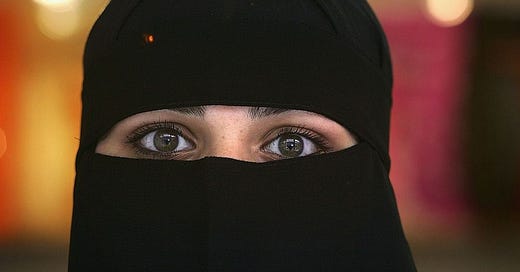




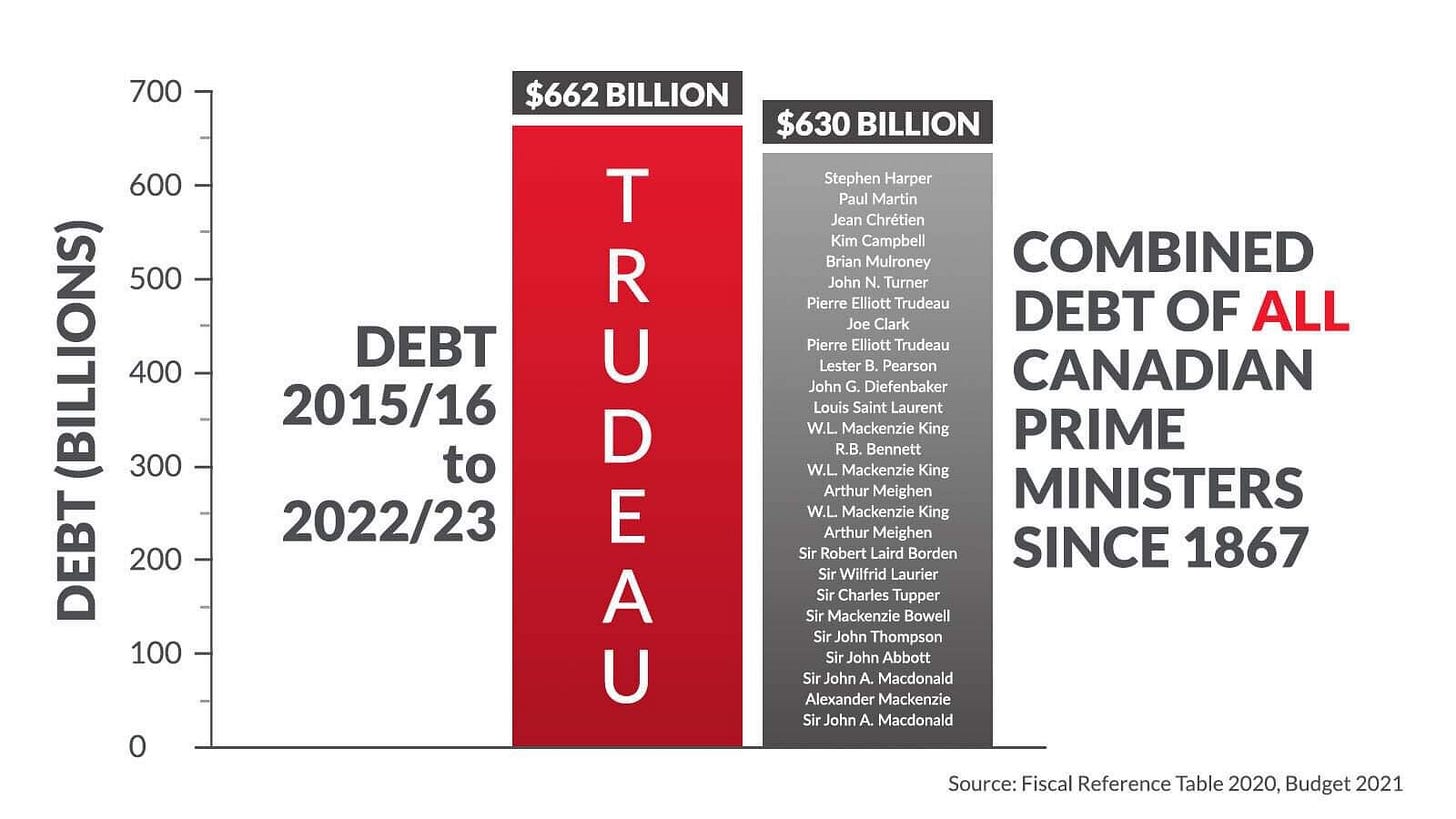


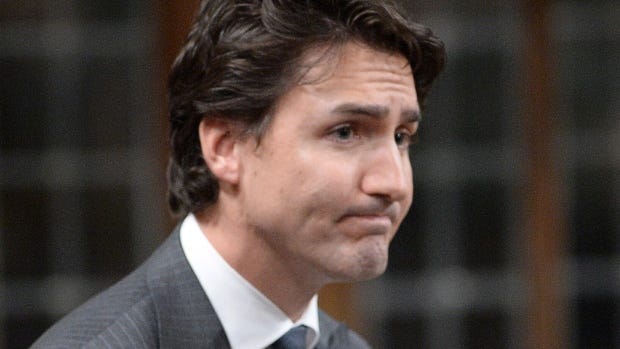
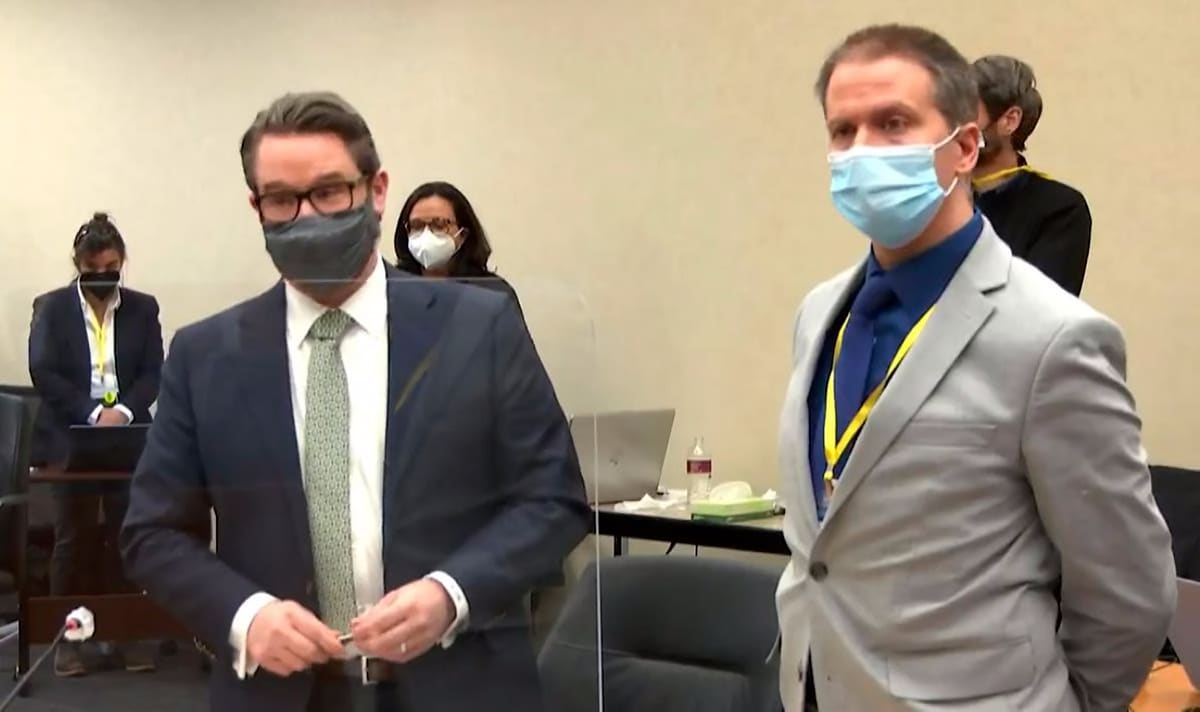
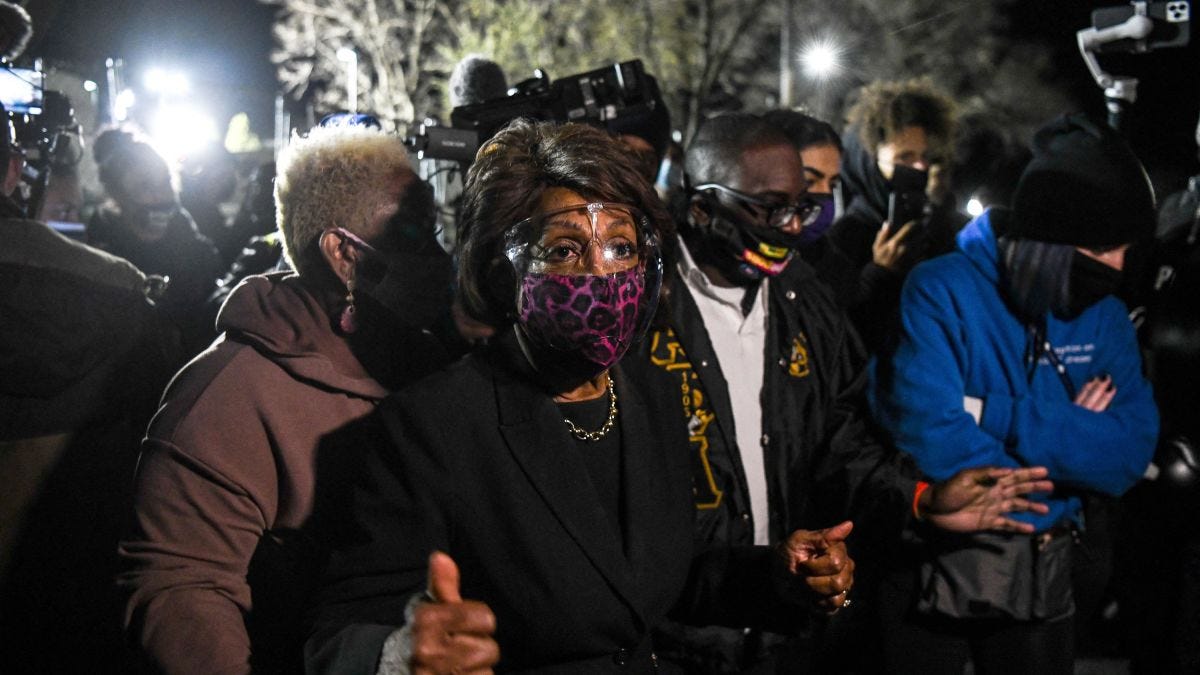









Share this post